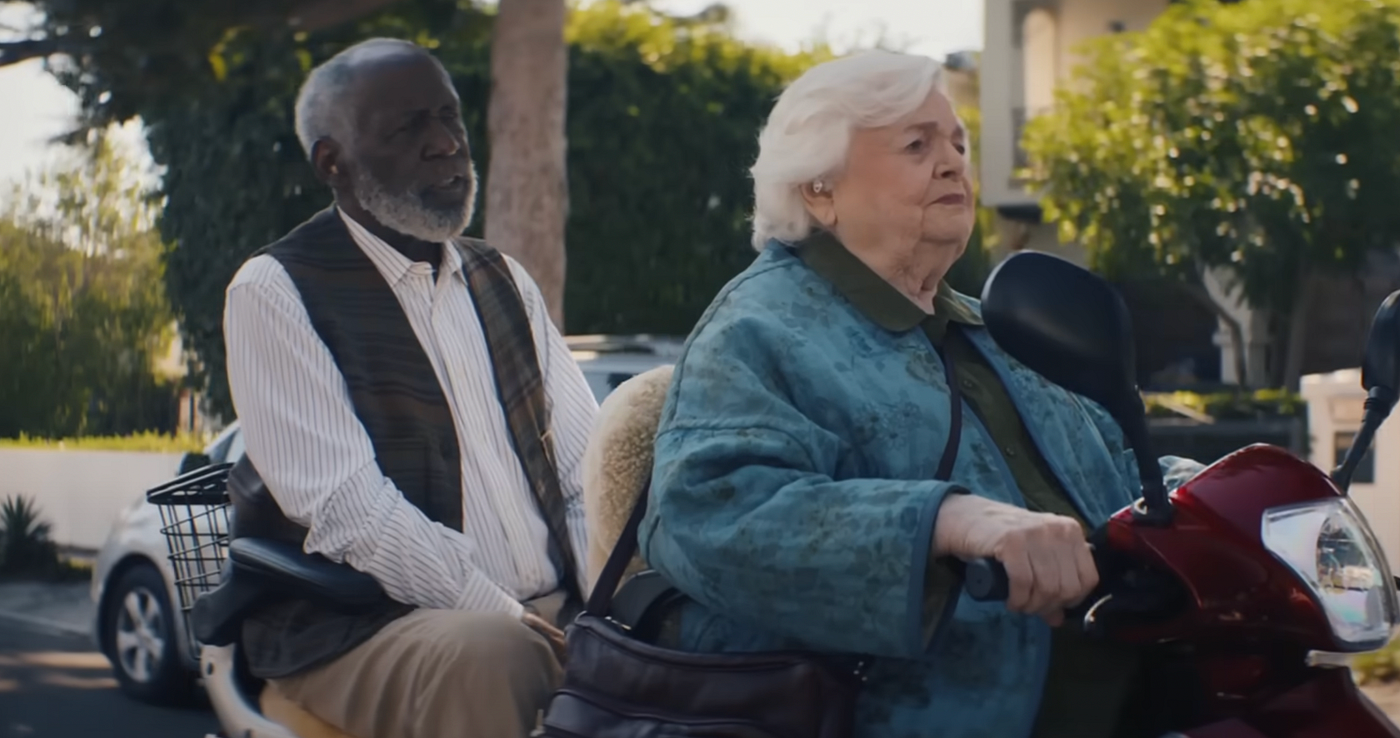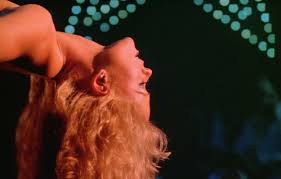At the Angelika Film Center in New York City, I went to see A Real Pain, a 2024 film written and directed by Jesse Eisenberg. It stars Eisenberg and Kieran Culkin as cousins David and Benji, who take a trip to Poland to both go on a Holocaust group tour, as well as to visit the childhood home of their recently deceased grandmother, who was a Holocaust survivor. The cousins grew up together like brothers, but have drifted apart in recent years, not having spoken for six months. David works in digital marketing and lives in Manhattan with his wife and toddler son, and is reserved and pragmatic, while Benji lives in Binghamton and is more eccentric and charismatic, but without a career direction in his life.
The tour is led by James (Will Sharpe), a British polite and genteel man who largely sticks to the script when delivering monologues about the tour sites. The group includes a middle-aged couple named Mark and Diane (Daniel Oreskes and Liza Sadovy), Marcia (Jennifer Grey), a recently divorced woman who is the daughter of a Holocaust survivor, and Eloge (Kurt Egyiawan), a survivor of the Rwandan genocide in the 1990s and a converted Jew. The group get to know each other at dinners and train rides, visiting the sites, while Benji is thinking more about sneaking away to smoke weed on hotel rooftops, agitating David with his spontaneity (like neglecting to wake him when they are on the train, intentionally missing their stop), and giving constructive feedback to the tour guide to not give so much information overload when they are visiting the Old Jewish Cemetery and trying to read the gravestones.
The cousins contrast with each other a lot, and David does confess to Benji that he wishes he could be more charismatic like him, lighting up a room, but also resents how erratic he is and how he can blow up a room just as easily. Culkin portrays this nervous energy as Benji that is more of a cover for his own anxieties, especially missing his grandmother and how she would snap back at him when she felt he was self-destructing with substance abuse and a lack of direction. He's really great in this film, and I wanted to learn more about his character, especially as more about his mental health struggles gets revealed, and I felt like Eisenberg was pulling his punches as a director, not digging deep enough, and leaving the finale more open-ended with Benji's story.
The film is a tight 90 minutes, and it balances comedy and drama well, especially in a sequence where the group visits the Madjanek concentration camp, and Eisenberg lets the scene be largely silent with sparse commentary from James as the guide, and it is this still moment in the film that lets the action take a break, and lets the audience sit with the characters in their sadness and grief upon visiting the gas chambers.
The film was co-produced by Emma Stone and her husband Dave McCrary, and it's an interesting movie that feels more like a road trip/buddy movie, a good mix of grief and comedy, and I recommend it as an interesting watch.






.png)
.png)





